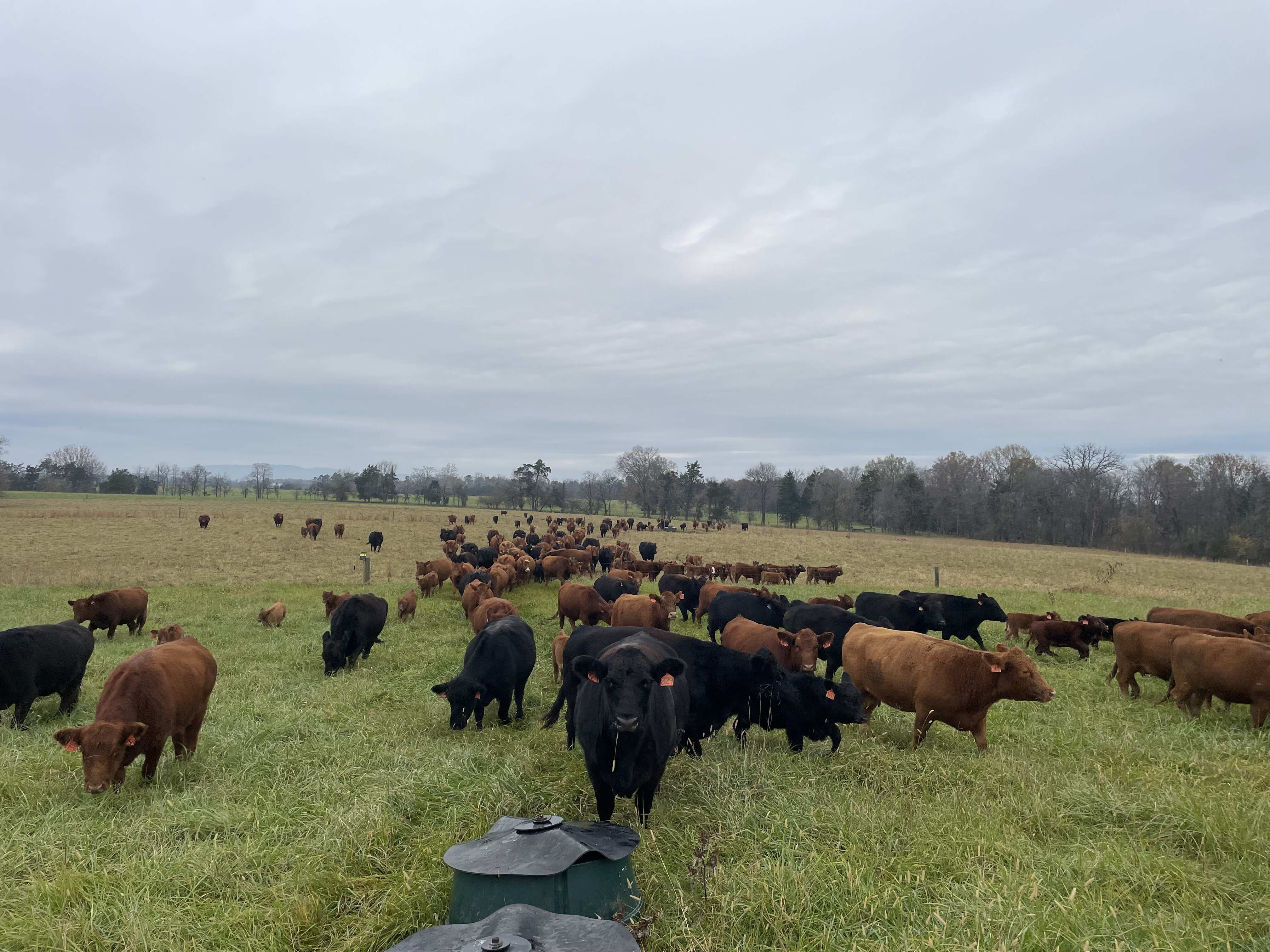We hope everyone enjoyed themselves for the holiday! Our day started out a little frantic with the Monday night storm taking out our power, but we were able to manage just fine! We had a great afternoon followed by a firework show at our farms sister property Ben Venue. Thankfully all the cattle, sheep, and dogs stayed put!
We set up a Rucker Farm information table with a chalk board that said, "Where is your food raised?" and had conversations with visitors on all topics surrounding regenerative farming, raising nutrient dense-local food, and the importance of knowing your farmer.
It is never my intention to fan fear around fad topics such as "lab grown meat" but it is a subject that a lot of our market community is bringing to our attention and was a topic that was brought up last night. Garrett's and my initial response to the news that the USDA approved only 2 weeks ago the growing and selling of "cultured" meat products in this country was, "they can't be serious, no one is going to buy that." After some further research, we discovered the marketing behind these products are promoting the ideologies of "slaughter free food" and "good for the environment".
I have said it before and I will say it again, our behaviors surrounding the food we eat are deeply personal and are a part of our identity and culture. I would never mean any disrespect to how you have chosen to feed your family. But when did food become so removed from nature-- that we could now accept food that is made under the method of "cellular agriculture."
This is a call to action that we have to remind one another that nature is so profoundly intelligent. Unfortunately, it would be our species to think that we could outsmart her work. We are dabbling in territory that is not ours to dabble in. This applies to large scale, conventional farming as well--this sort of manipulation was never natures design. This is why we are drawn to regenerative and biodynamic practices, it's because we are not putting ourselves in a position of an "all knowing, power". We are natures students. We have so much to learn from observing and participating in the cycles of life, the microbiology of the soil, and forces we may not ever fully know.
I am saddened by peoples disconnection to the big picture, though I hopeful in this community, the ripple effect, the children growing up today learning alongside their parents who have had to unlearn generations of confusion about our food pyramid, how and where our food is raised. |



